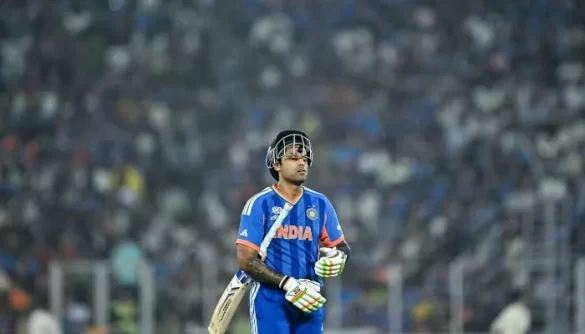Test Cricket Shortage Hurting Pakistan’s Performance
Pakistan’s interim head coach, Azhar Mahmood, has attributed the national team’s recent failures in Test cricket to a significant decline in the number of matches played. Speaking at a press conference at the Rawalpindi Cricket Stadium, Mahmood said that Pakistan’s lack of consistent exposure to the longer format has prevented players from developing the endurance and mindset required for Test success.
He pointed out that Test cricket demands not just skill but sustained discipline over five days — something that only regular participation can build. When a team gets opportunities, it learns to make full use of them. Unfortunately, we haven’t played enough Test cricket to gain that experience, he said.
Dropped Chances and Missed Opportunities
Reflecting on the team’s recent defeat — widely believed to be against South Africa — Azhar Mahmood noted that Pakistan allowed their opponents to regain control by dropping key catches and missing stumpings at crucial stages.
In modern Test cricket, small mistakes cost big. You can’t afford to let a team like South Africa back into the game, he emphasized. According to him, the inability to convert opportunities in the field reflects not only technical flaws but also mental lapses that need urgent attention.
Domestic Conditions Not Helping Spin Bowlers
Mahmood also shed light on the domestic cricket structure, saying it fails to prepare bowlers — particularly spinners — for international competition.
To win a Test match, you must take 20 wickets, he said. But in our domestic circuit, spinners rarely get the kind of pitches that allow them to learn how to attack and control the game. That’s why, at the international level, they struggle to make an impact.
Pakistan’s domestic cricket has long been criticized for producing batting-friendly surfaces, offering little help to bowlers. Cricket experts have repeatedly urged the Pakistan Cricket Board (PCB) to create a balance that mirrors international conditions more closely.
Batting Collapse and Lack of Strike Rotation
Azhar Mahmood admitted that Pakistan’s batting collapses remain a serious concern. The team has often failed to sustain partnerships or rotate the strike effectively — especially against quality spin bowling.
South Africa batted aggressively and took the game away from us. Our batters, on the other hand, got stuck. They need to learn how to rotate the strike and put pressure back on the bowlers, he explained.
Mahmood stressed that playing defensively for long stretches rarely wins matches in modern Test cricket. “Our batters must understand how to score. You can’t win by just defending. In international cricket, mental toughness is the key.”
The Importance of Playing More Test Matches
Citing statistics, Mahmood revealed that Pakistan played only four Test matches in the past year, compared to England’s 15 and Australia’s 11. Such limited exposure, he argued, leaves Pakistani players underprepared for the intensity and demands of red-ball cricket.
Experience comes only with time spent in the middle, he said. The more Test cricket we play, the better our players will perform. Playing regularly against top sides is the only way to improve.
Cricket analysts agree with Mahmood’s assessment. They point out that Pakistan’s scheduling often prioritizes Twenty20 and One-Day Internationals due to commercial interests, leaving little room for the longest format. The team’s ranking — currently outside the top five in ICC Test standings — reflects this imbalance.
Building for the Future
As interim head coach, Mahmood acknowledged that rebuilding Pakistan’s Test culture will take time. He emphasized the need for patience, stronger domestic competitions, and long-term planning.
We have talent, he said. But talent alone is not enough. We must give players consistent opportunities to play, learn, and grow in the red-ball format. Only then can we bring Pakistan back to its proud Test cricket tradition.
Mahmood’s remarks highlight a broader issue within Pakistan’s cricket ecosystem — one that many former players and coaches have echoed for years. Without structural reforms, sustained investment, and a renewed focus on the Test arena, Pakistan’s struggle in the format is likely to continue.















